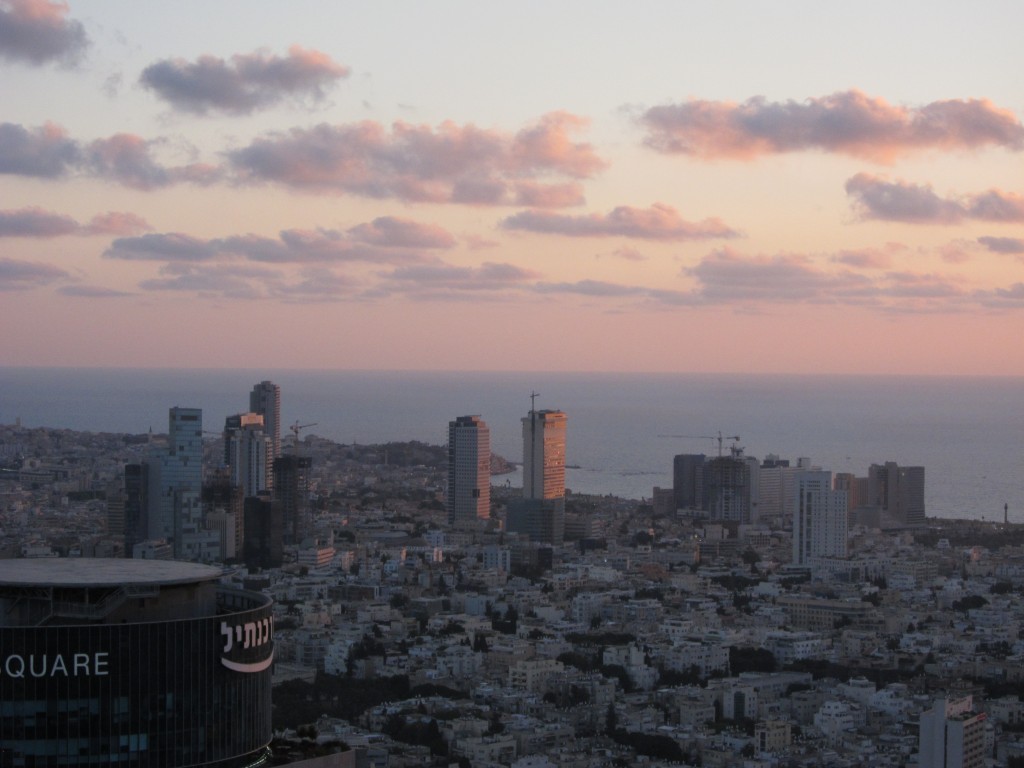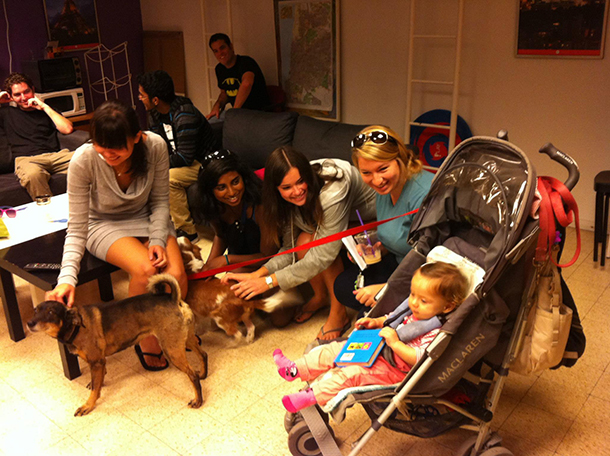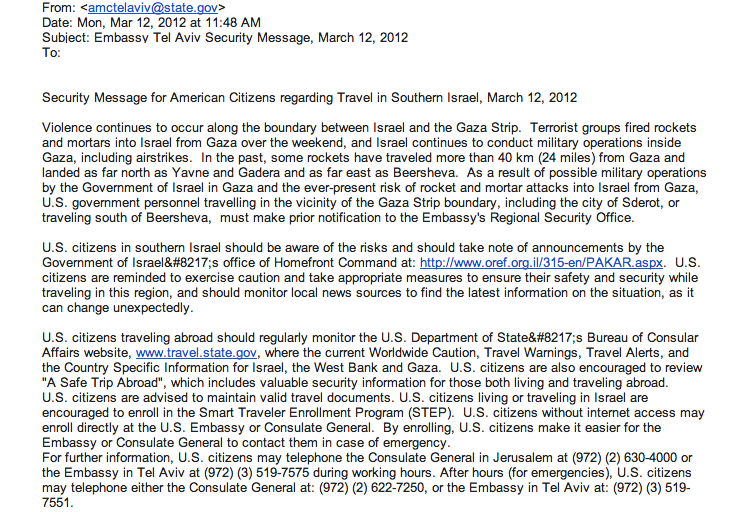
During the most recent Israel-Gaza conflict that has claimed the lives of more than 150 Palestinians and Israelis, the short-lived war reached far into Israel, disrupting civilian life in the state’s cosmopolitan and relatively isolated city.
Though a ceasefire brokered between the two groups began last week, 11 NYU students were evacuated from the NYU Tel Aviv site as military actions escalated in mid-November. For these students, life was abruptly launched into limbo. And while the general sentiment among faculty, students and staff has been appreciation and respect for NYU’s decision to suspend the program for the rest of the fall 2012 semester, the choice has also left students dangling in the middle of unfinished classes, jobs and projects.
Even now the ceasefire remains fragile and has forced students to find creative ways to complete their studies away from Tel Aviv. As the university continues to discuss the fate of the program for spring 2013, previous NYU Tel Aviv students reflect on their experiences while future hopeful attendees discuss their plans in the Middle East.
THE NYU OPERATION
On Nov. 15, sirens rang throughout the Tel Aviv area for the first time since Saddam Hussein targeted Israel during the 1991 Gulf War. But by the fourth day, most residents and students had grown accustomed to the daily alarms.
As a result, NYU’s decision to evacuate the 11 students at such short notice came as a surprise even to the small group of faculty and students.
At approximately 2 p.m. on Nov. 17, an email from Student Services senior director Christopher Nicolussi informed students of the mandatory evacuation to London.
Because many faculty and staff are residents of Tel Aviv, they were given a choice to remain in the city.
NYU spokesman John Beckman said while students expressed disappointment at the compressed timetable for saying their goodbyes, the overall morale was positive. The university’s decision stemmed predominantly from the fear that the conflict would escalate, leaving students trapped in a danger zone.
“We didn’t want to get to the winter break and find that circumstances had evolved to the point where they were unable to leave Israel,” Beckman said. “We could ensure the students’ successful completion of their studies were the considerations that drove our decision-making.”
Even a brief goodbye lunch with the Tel Aviv faculty was cut short by a siren. Emerging from the bomb shelter located in the NYU youth hostel, a security guard escorted the students to Tel Aviv’s Ben Gurion International Airport around noon the following day.
An administrator accompanied the group on its flight, and another was ready to welcome them into the NYU London community when they landed.
Executed in under 30 hours, the university’s evacuation plan was able to gather students from as far as Istanbul. All were given 24 hours to return, pack and prepare for their flight to NYU’s London campus. NYU Abu Dhabi junior Caroline Manela sold her newly purchased bike, and GLS junior Erin O’Donnell packed up her newly rented apartment.
Their arrival on Sunday came just three days before a bomb exploded on a Tel Aviv Dan Bus, No. 142 shuttle bus, injuring at least 28 people.
“That’s a bus that a lot of us would take and a lot of us know,” O’Donnell said.
GLS junior Madeline Sanderford said the route is a popular trip for her friends on their way to miscellaneous jobs or errands.
“As much as we didn’t want to leave Tel Aviv, I think once we heard about [the explosion] we were all pretty happy with NYU’s decision,” O’Donnell said.
After the evacuation, staff members said they were impressed by the the fluidity and swiftness of the transfer operation. NYU London student life coordinator Tony Skitt, who describes himself as “the ‘London logistics’ guy,” openly applauded the work of fellow administrators.
“We had, at our disposal the services of a highly-professional transfer team,” Skitt said. “I didn’t ask them if they had any ‘double-O’s’ in front of their names, but it wouldn’t have surprised me.”
Throughout the trip, NYU covered travel and living expenditures and worked to accommodate the wants of every student. After arriving in London, the group was taken to breakfast, clothes shopping on account of the weather difference and, finally, a hotel.
“NYU London people welcomed us like we were their family,” said Sanderford. “We were really lucky with the way NYU handled everything and just looked out for us.”
After working with advisers to outline an educational plan of the rest of their semester, they were given a choice to finish out their studies in Florence, Prague, London or New York.
Though the evacuation catapulted them out of a city they had just begun to call home, the professionalism and expertise of NYU’s team delivered a seamless transition.
“For not having any control over my life for 48 hours or more, it was about the smoothest two days of the semester,” Manela said.
A SEMESTER UNDER ATTACK
Tel Aviv’s picturesque cafes and balmy serenity evince a beach town that matches the rowdy citizens.
But the fashionable restaurants and bars conceal a map of separate underground bomb shelters located near public parks, high schools and buildings. In the NYU hostel where the students lived, in addition to its role as a recreational room furnished with a sofa and flat screen TV, the lounge also acts as a shelter for students.

This past March, the threat of Iran’s nuclear program loomed over the Middle East, but students said a sense of danger was almost nonexistent for Tel Aviv locals.
“I got a little worried when I got an email from the [embassy] that a missile had hit just 40 kilometers away from Tel Aviv,” CAS junior Kimberly Usewicz said. “But when I talk to other Israelis about it they’re like ‘40 kilometers? That’s far. That’s really far.’”
Usewicz recalled frequently reading about inbound rockets hitting southern cities in the local papers and sporadically received security emails from the U.S. embassy, advising citizens against traveling to certain areas of the country.

The university also required students to sign a document that forbade them from traveling into Palestinian territories in Gaza or the West Bank.
The contrast between the tranquil, developed beach city and other regions closer to the Gaza Strip became especially apparent when students traveled south to Sderot and areas in the Negev — cities often shelled because of their proximity to the Gaza Strip.
Geographically and culturally removed, for most students in the spring 2012 program, “Tel Aviv was the safest place they could have been,” CAS senior Josh Diamond, who studied at the site last semester.
But even as the conflict progressed and the sirens marked a potential danger, Tel Aviv citizens remained complacent.
“The sirens would go off, and people would run and hide,” Sanderford said. “And literally within a blink of an eye you would look out on the patios out on the street of Tel Aviv, and it would be like nothing happened.”
Israel’s Iron Dome technology and Gaza’s short supply of long-range rockets further assuaged fears of immediate danger. But for some NYU students, the military advantage did not dissuade them from planning ahead and taking precautions against a possible attack, which O’Donnell once faced unprepared. She and her friends were forced to find make-shift shelter during an attack while going to get pizza.
Since then, they have learned to map out their trips throughout the city and make sure to travel along routes near to bomb shelters.
“We didn’t want to risk hiding under a storefront,” Sanderford said. “So people really thought about it in advance.”
A version of this article appeared in the Monday, Dec. 3 print edition. Amy Zhang is web managing editor. Email her at [email protected].

























































































































































